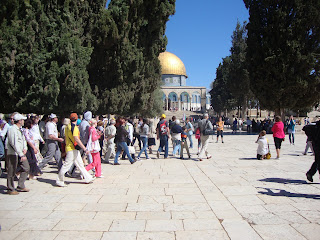Vered HaGalil and the Kitniyot Problem
In last week's the Tzohar parasha sheet, they ran a series of articles on kitniyot. After an article by Rav Dov Lior and some Q&A, there was a fascinating article about Tzohar's efforts to bring some sanity--and some halacha--back to the kitniyot issue. Tzohar's Rabbinical leadership has been in touch with the Rabbanut and a revolution in Pesah labeling is on the way with more accuracy and less humrot that have no halachic justification (although they are popular in Haredi Judaism). They also took the Rabbanut to task for not enforcing its own psak from many years ago that ruled that canola/"liftit" and cottonseed oil are kosher for Pesah even for those who do not eat kitniyot. Tzohar concluded by saying the last year has witnessed the rise in power of the consumer. They call upon Jews who care about halacha to buy only from companies that have halachically accurate Pesah hekshers... not just during the seven days of Pesah, but all year long. Today I w


